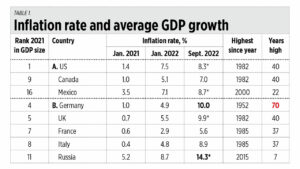Celeteque says user awareness boosts science-based skincare

By Miguel Hanz L. Antivola
CONSUMER awareness about the scientific bases of personal care products has grown over the years, according to an industry participant.
Expert testing by cosmetic chemists and dermatologists should meet the demands of consumers, but the process is rigorous yet worthwhile for business growth, Ma. Christine C. Navarrete-Catanghal, segment head for skin and personal care at Unilab Skin Sciences, Inc. (ULSSI), said in an interview with BusinessWorld.
ULSSI is the company behind Celeteque, one of the first local skincare brands co-developed with healthcare at its forefront, which started in 2006 with an anti-aging moisturizer exclusively available through dermatologists.
“When we eventually saw that doctors latched on well to the product because of its efficacy, we realized this potential to market it commercially,” Ms. Navarrete-Catanghal said.
However, immediately addressing certain conditions was the trend in the personal care industry before, according to Ms. Navarrete-Catanghal.
“The difference that we’re seeing right now is everyone is actually getting into the whole science in skincare trend,” she said, citing whether it may be an “ingredient story or backed up by clinical studies and aggressive claims.”
“Actually, it’s not a trend anymore. That’s the way of doing skincare nowadays, which was not present back then when the brand was launched,” she added.
The skincare market in the Philippines is projected to grow to P74.8 billion in 2026 with a 7.7% compound annual growth rate from P51.8 billion in 2021, according to analytics firm GlobalData in a report.
However, GlobalData said that the “clean beauty” trend will be a driver for growth in the industry.
Clean beauty refers to personal care products marketed with its use of natural ingredients and sustainable claims, which may be used by brands ambiguously due to the lack of formal regulations by the Food and Drug Administration (FDA).
With such emerging trends from social media, there is a thin line that creates misinformation, Ms. Navarrete-Catanghal said on current challenges in the skincare space.
“Social media has made everyone a skincare expert, and everyone can talk about what worked for them,” she said.
“There are many claims being made, so consumers may need to be more vigilant in terms of distilling true claims versus claims that can’t be backed up.”
Investing in the science behind its multiple product lines allowed Celeteque to grow, according to Bernadette C. Fernandez, ULSSI brand lead.
“With consumers becoming smarter and preferential, what we’re seeing right now is a lot of innovations and brands moving toward derm-tested and science-based skincare,” she said.
PRODUCT CERTIFICATIONExpert testing and certification of products take on a rigorous and labor-intensive process, according to Malica Mariam M. Maniri, ULSSI product associate.
The process starts with product development to identify claims and benefits according to consumer preference, followed by a series of clinical tests.
Ms. Maniri said that the sun protection factor (SPF) for sunscreens is stringently tested both in the lab and on human skin to pass FDA certifications.
The test includes monitoring by dermatologists on the product application on at least 30 people for about a month, alongside a skin patch and machine test.
SPF testing must show a series of precise and accurate results, which is equal to or greater than the target protection factor under uncompromising standards.
“That’s how strict it is to go through a dermatologist-tested route, and to always ensure that all of our products go through that process,” Ms. Maniri said.




